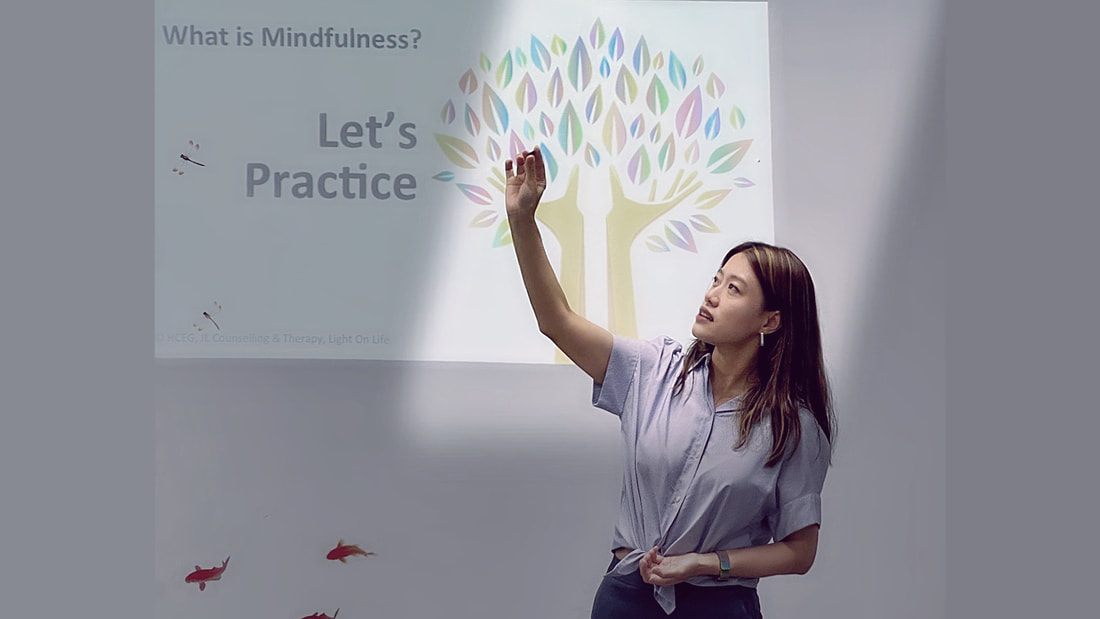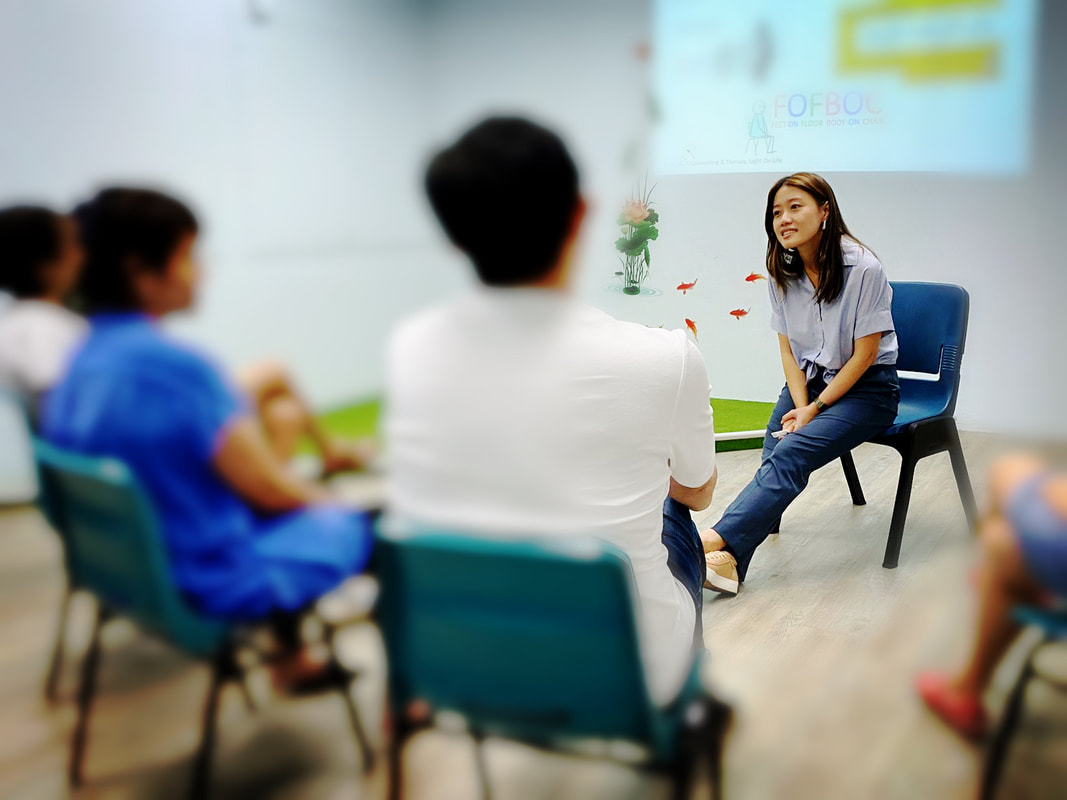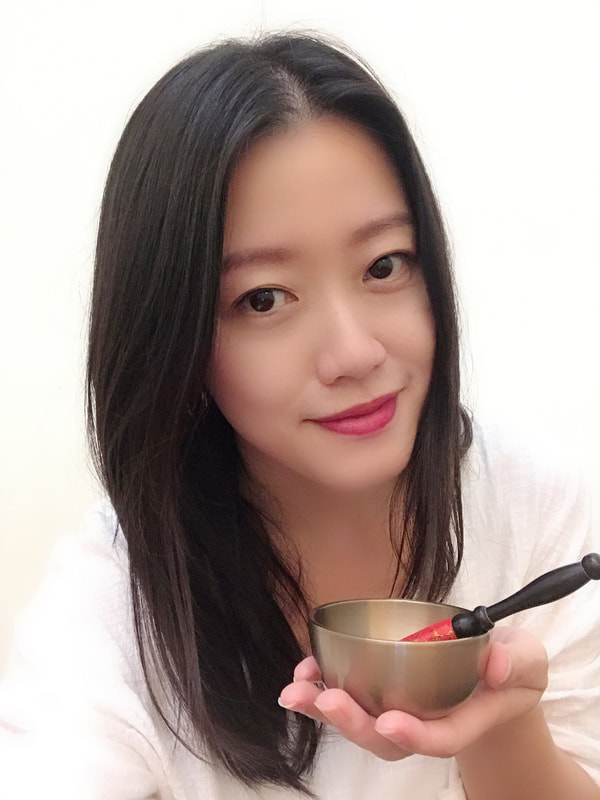|
This article was originally published on LinkedIn on 2 March 2020. They say “curiosity killed the cat.” Being too inquisitive could lead to danger. So don't ask too many questions. But one of the best advice I have ever received was from my very wise mentor Char Wilkins, who constantly reminded me when I was training to be a mindfulness teacher - “Curiosity will always get you out of trouble, Erin.” That’s right, I have learned that there is no such thing as being too curious, as long as it was grounded in the practice of mindful awareness. I used to feel really nervous about facilitating an inquiry into a mindfulness experience; posing a question like "What did you notice?" to a group of people, and potentially having every one of them stare right back at me in complete, deafening silence - it was unnerving. Silence was something I felt really uncomfortable with. Do they understand my question? Are they getting this? I would think to myself. I must look pretty amateur right now. They're onto me, they know I'm a phoney... Oh god, this is the longest anyone has not talked, ever. In reality, it was perhaps only five seconds of silence; to me, it felt like an eternity of awkwardness, self-doubt, and shame. My attention would get pulled into an internal whirlpool of self-judgmental thoughts, and before I knew it, I had lost sight of my original intention, which was to attend to and be present with the experiences of my participants. Throughout the rest of the session, dread and anxiety lingered behind every word I spoke, every question I asked, and every response I offered. Char would ask me during our mentoring sessions, “What are you curious about, Erin?” This golden question prompted the start of a paradigm shift in my facilitation approach. We have a strong tendency to quickly form judgments about anything and everything that arises in our experience. This usually stems from a place of fear or uncertainty, which we don't particularly like to deal with. We inwardly make assumptions and draw conclusions without taking the time to investigate what is really going on. The mind automatically runs scripts we are familiar with in an attempt to make sense of a situation. Your employee is staring at his phone during a meeting - that guy is not a team player. Your boss takes a deep breath in as you present your idea - nope, she's not buying this. Your partner texts you, "We need to talk," - is she breaking up with me? Your child avoids answering your question - why doesn't he ever respond to me? A stranger remains seated on the train despite seeing an elderly standing in front of him - ugh, what a jerk. What might happen if we were to invite a little curiosity into our experience? The moment we become curious about something, our attention softens and widens, our judgments start falling away, and suddenly space opens up for us to witness the experience as it is, and to explore more possibilities. Your employee is staring at his phone - could he be attending to something urgent? Does he need support? Your boss takes a deep breath in - could that be an attempt to be more present with me? Your partner texts you - what is she concerned about? Your child avoids your question - is something bothering him? Does he feel safe enough to share? A stranger doesn't give up his seat - could he have a condition I don't know about? And what happens when we stay curious and open ourselves to more possibilities? How might our interactions with one another change? Coming back to my silent group of practitioners, I subsequently reminded myself to be open and curious about what was happening there and then, without the need for a specific answer or outcome. Moment by moment, I practised resting in the atmosphere of silence, observing not only the participants, but also my very own discomfort. After a while, I realized that silence was just silence, and all that awkwardness was really in my head. Curiosity had allowed me to turn towards my experience and notice the unnecessary evaluations I was reactively bringing in. There was nothing inherently right or wrong, good or bad about that silence. The only thing I needed to be aware of at each moment of noticing, was that silence was present. And this information was enough. It was an epiphany, the moment I discovered that being curious about how things are, was more important than thinking about how things should be. Today, I am comfortable enough to invite the entire group to rest with me in silence, even when we are supposed to be sharing. With this open curiosity, I see thought bubbles brewing in the group and patiently wait for them to reveal themselves; I discern appropriate moments for holding space, and the best opportunities to value-add; I bear witness to how each person - including myself - transforms from struggle, to knowing, to insight. So, what are you curious about?
1 Comment
Whenever I met with doubts or challenges in teaching the Mindfulness-Based Stress Reduction Program, my mentor would gift me this timely reminder: "Erin, be curious. Curiosity will always get you out of trouble". The cultivation of curiosity in mindfulness is an interesting practice to engage with. When was the last time you were truly curious about something? If you have observed a child figuring out the way the world works, you might notice the wonderment and spark in their eyes as they discover something new and interesting. As a child, we were naturally curious and open about everything around us, and we simply wanted to explore. But as we grew up, fears, expectations and judgments set in, and we no longer approach things with genuine curiosity. We worry about the unknown or ambiguous, we reject repetition and avoid change, we seek concrete answers to the questions we ask, we tend to form biased perceptions, categorizing what we observe into stereotypes, and we almost always look to get something - usually a function or benefit - out of anything we see or come across. Mindfully Curious Being curious about things is encouraged in mindfulness practice. In mindfulness, we practice a lot of acceptance towards the stresses and challenges in our life, but before we can even develop greater acceptance, we need to train the mind to see things just the way they are. We notice the prejudices and assumptions we tend to make, and learn to let go of preferences for things to go our way. When we are able to cultivate such genuine curiosity that is free from expectations and judgment, we usually experience remarkable changes to our relationship with the world around us.
Curiosity does not kill the cat. Instead, it can be your new best friend - a support you can depend on anytime, anywhere, and a gentle practice that invites you to approach life in an entirely different way. If you'd like to learn how to cultivate genuine mindful curiosity, do check out our 8-Week Mindfulness-Based Stress Reduction Program. |
About The AuthorMiMo founder Erin Lee is a Mindfulness Coach and MBSR Teacher at Mindful Moments, and advocate of mindfulness as the way of life. She conducts the classic 8-Week MBSR Program, as well as the 8-Week MBSR Workplace Program. Categories
All
ContributeAre you a mindfulness practitioner and have meaningful experiences or thoughts about mindfulness that you'd like to share? You can contribute an article on the MiMo blog! Please contact Erin to find out more.
Archives
June 2021
|





 RSS Feed
RSS Feed